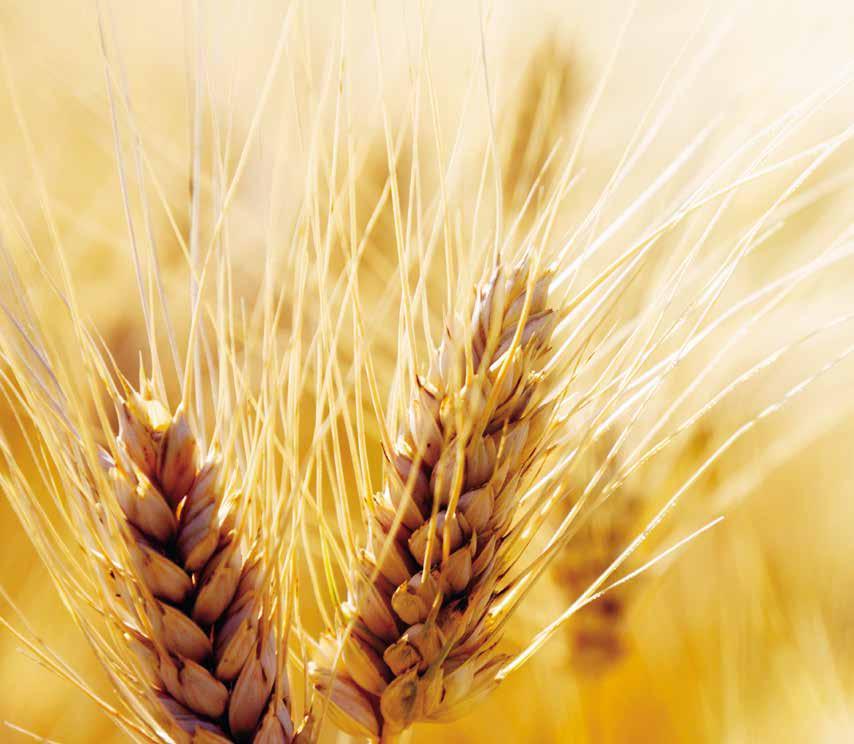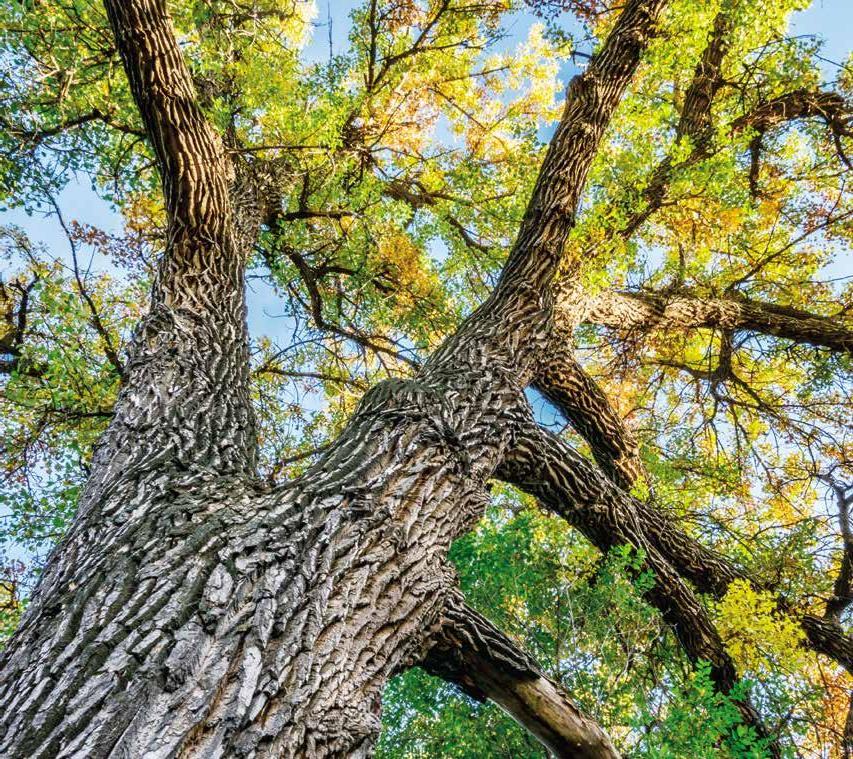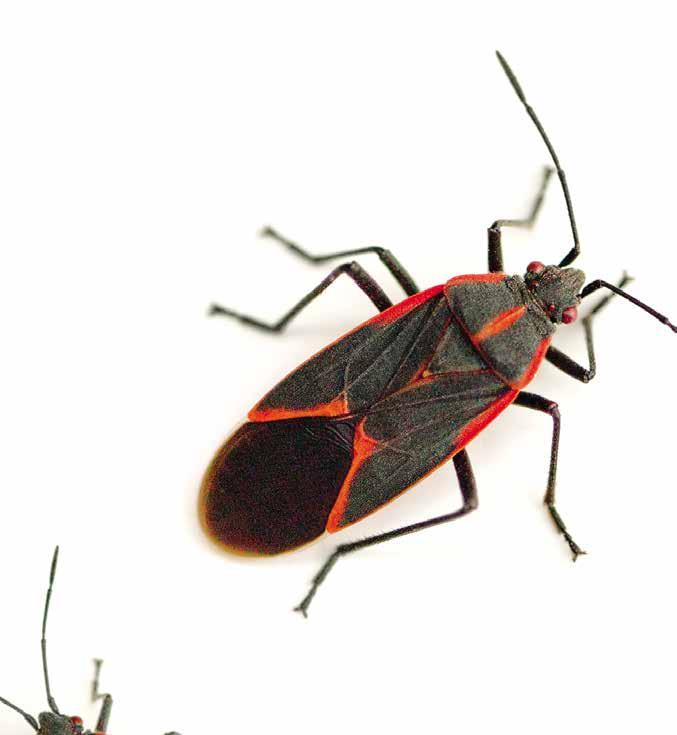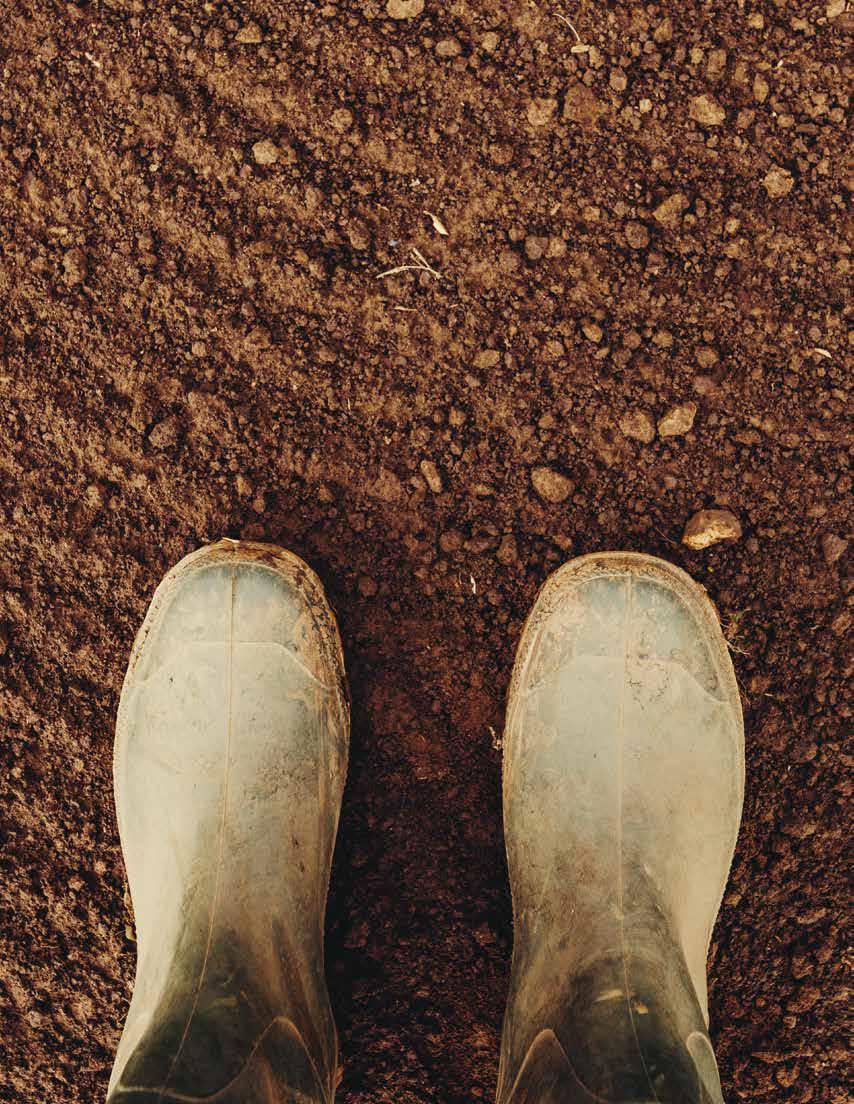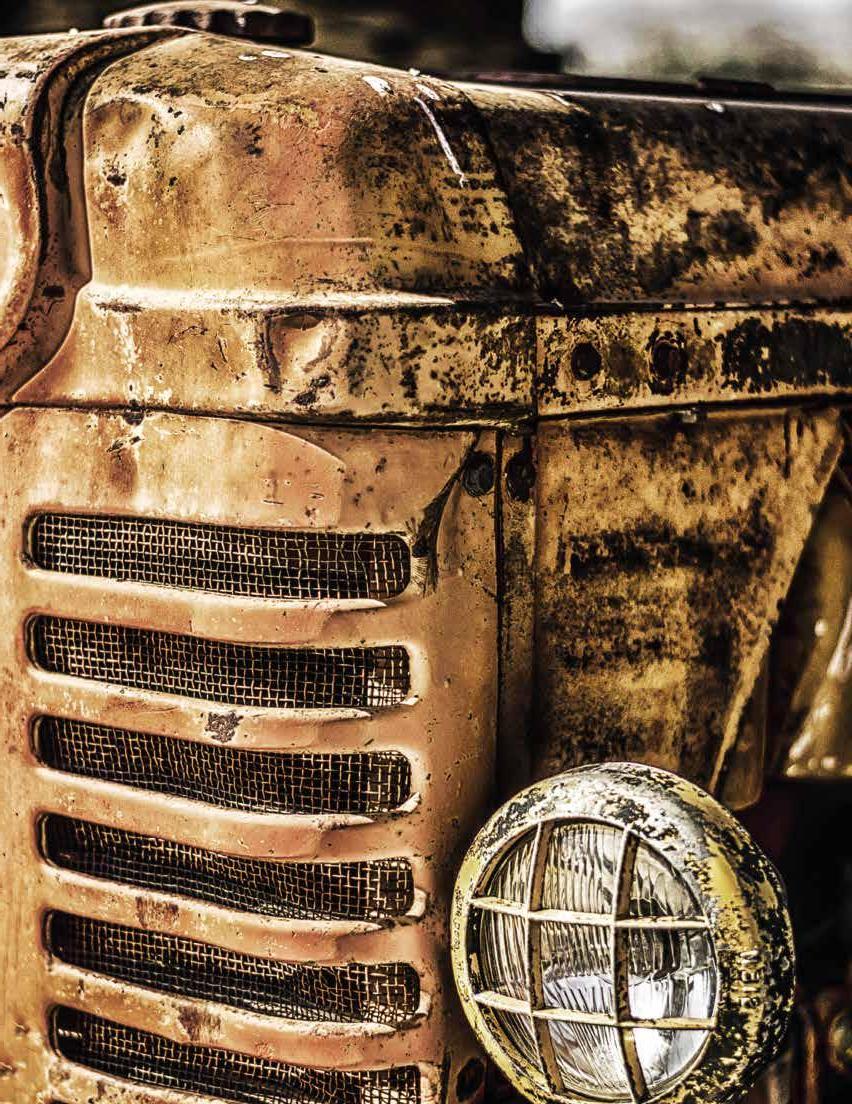
10 minute read
Finding My Place by Finding Wendell Berry
by Jane M. Schreck
At the end of the first decade of the twentyfirst century, I found myself teaching English at a community college and enrolled in a doctoral program on teaching and learning in higher education. In a time of giddy promise from technological innovation, with some of my cohort classmates choosing dissertation topics about online learning or computer-aided instruction, I found myself captured by the writings of Kentucky writer-thinker-farmer Wendell Berry and the idea of applying his philosophy of agrarianism and place to higher education. My choice of Berry as a dissertation topic came as a profound surprise to me. After all, I was raised on Velveeta cheese.
Advertisement
Velveeta is not even cheese, really. Officially, it is identified on the box as a “pasteurized prepared cheese product.” And my Velveeta was typically served on supermarket bread. For years, only with my paternal grandmother did I encounter real cheese. During Memorial Day weekend, for example, the family ritual was to pile into the station wagon and drive with Grandma the sixty miles to a large but nearly vacant cemetery on the edge of tiny Mercer, North Dakota. Our mission was to clean up the grave sites of my grandfather, his first wife, and their firstborn daughter, born and dead in just two days, something we kids seemed to discover anew each year when we studied the granite dates. And here too was the plot where my grandmother would be buried in her ninety-sixth year. It was all very matter-of-fact, even lighthearted. Grandma would bring bedding plants, a spade, and hand tools, and I would have to witness the unusual spectacle of my father awkwardly wielding a spade in his wingtip shoes. Afterward, with the lunch Grandma packed, we would have a picnic, sometimes at the town park, but often at the cemetery. The staple of the lunch was cheese sandwiches, made with bread she had baked herself and cut in thick, irregular slices, holding pieces of her exotically real cheddar cheese. Sometimes too we would have applesauce that she had made with apples from her own tree.
Perhaps I make too much of Velveeta. I recognize that the cheese my grandmother served had been purchased at a grocery store, too, but somehow the difference between the cheese in her sandwiches and Velveeta seems to me now emblematic of the difference in a way of viewing the world. Velveeta is a food much removed from its source, placeless and somehow to me vaguely modern and urban. And I was raised as a modern, urban kid, even in North Dakota. Though I rambled about outdoors in a big backyard or in nearby vacant lots and prairie parks, I grew up more indoors than out. My family is generations removed from making a living directly from the land. My people had city jobs even in small towns. One grandfather was a shopkeeper with aspirations of being a businessman, as his sons became, and in the early part of the century, he sold some of the first automobiles in the state. He arrived in Mercer on a bicycle, but he would leave in the mid-1920s in a car. My other grandfather was a postmaster and newspaper editor. He even had a job for a time in North Dakota's tallest building, the state Capitol. One grandmother was educated to be a schoolteacher and, in her widowhood, worked as a librarian. When I knew her, she walked or took the bus to get around town and lived in an apartment that begged to be in a big city. Though I am aware that I did not come from a big city, still the farmland and ranchland that I saw as a child blurring past the side window of our station wagon seemed not hostile but certainly alien to my people and our history.
Only my paternal grandmother—she of the strange, hard cheese—seemed to identify with the land. She too had been educated to be a teacher, but for a brief time, she had a farm and tried without success to make over her shopkeeper husband into a farmer. When they moved to the capital city for greater business opportunities, she tried without success to turn her children into gardeners. She maintained a big garden almost to the end of her life, with the motto “Eat what you can and can what you can’t.”
My people are also mobile. Since falling onto this continent from Ireland and Norway in the mid-1800s, my people drifted into North Dakota like the east wind that stirs up rain for the dry prairie. We have no ancestral home place or piece of land. I hold in my imagination the names and stories of little towns like Ada, Minnesota, and Starkweather, North Dakota—small places of the world, grown even smaller by the time I ever saw them. I have ancestors scattered in tiny cemeteries from Scott and Stearns and Norman Counties in Minnesota to Ramsey and McLean and Burleigh Counties in North Dakota—mute graves that will not be awakened by bedding plants or memories brought in the spring. It is possible that I will be the only member of my family in many generations to be born and to die in the same place. I was raised and educated to be rootless and to think of rootlessness as normal, schooled not only by my family tradition but also by a culture and institutions that urge their young people to go out into the world and succeed, with success unlikely to happen at home or in any small place. It was never my intention to come home. That I wound up at home has been an ongoing surprise and blessing both, but in my family tradition it is also an anomaly.
Finally, growing up on a prairie with no connection to the soil, the most striking and notable feature of the view is the sky, that overarching, horizon-to-horizon, so-blue-it-will-hurt-your-eyes, infinite sky. It is a perspective that makes it hard to keep in sight the constraints of sensible or appropriate scale. Combine that view with the necessary optimism of the stock of “the next place will be better” immigrants from which I spring, and I was a willing target for the modern world’s easy talk of limitless opportunities, limitless options, limitless potential, all detached from the consequences and accountability of the care of a particular place.
My point is that little in my background suggests that I should have any connection to Wendell Berry’s agrarian philosophy of community and place, with his suspicion of technology and insistence on limits and appropriate scale. He seems a surprising— even an unlikely—focus for a dissertation that I would research and write. Common sense might expect that the scholarly journey of my doctoral studies on higher education in the twenty-first century would have led me in the opposite direction. And yet Berry’s writings grab hold of something fundamental in me and do not let go. This is surely not because of my experience on a farm because I have none, nor my experience of rural life because, however misguidedly, I think of myself as more urban than rural.
Instead, I believe what makes Berry’s writing resonate with me is my experience as a college teacher in the twenty-first century. As we in education have been urged to ceaselessly “innovate”—something that seems to involve technology more often than creativity—I was unable to articulate my resistance. As we have been told to accept that education is better when it is faster, more efficient, more standardized, more compartmentalized, I did not understand my doubts. As tools of technology are touted that would allow scalability and global reach, I felt more and more that education is really about human relationships. While legislators and education reformers act as though the survival of humanity depends only on science, technology, engineering, and math, I have learned that our survival depends first on sympathy, mercy, and love—qualities often more easily developed by the humanities than by STEM. Finding words for my unease—finding Wendell Berry—there was joy in this journey.
Reading Berry helped me answer some of my own misgivings about current trends in education and suggests a better way. When I read his poems about farming, I think about education. When I read his essay about the order of Elmer Lapp’s milking barn and its integration into the whole workings of the Lapp farm, I think of how education could be improved with better integrity among its parts—improved if we could do a better job of teaching the whole student. When I read about the complex, formal intelligence required to run a farm holistically, I think of interdisciplinary lesson plans and curricula development. When I read Berry’s essays or fiction, I understand that there are dignity and satisfaction in work done well and not in work done quickly or on a massive scale. When I read in Berry’s work about the disintegration of rural communities, I think about how in the past I may have contributed to pulling my students from their connections to home, how I have dutifully supported the cultural expectation that success is about competition and ambition and addled clichés about stars and overreach and limitlessness. Or I think of my own children, who grew into—for their father and me—the two most fascinating people in the world and who are now thousands of miles away from me and from each other. I know I contributed to that in ways subtle and not. So there was grief in my journey too.
But there has also been great affection in this journey—for Berry, his characters, and his writing; for my students and my work as a teacher; for the effort of researching and writing; and for my life in this place as a wife and mother, daughter and sister, friend and neighbor. I loved doing this work, every step of the way, and that emotional investment made completing the dissertation life-changing in ways I am still discovering.
What is clear to me now in a way that was not before I found Wendell Berry is that the placelessness of modern industrial thinking has failed us—culturally and ecologically. And it has failed us educationally. When I began the doctoral program, I thought data analytics and greater efficiency would save higher education. By the time I completed my dissertation, I could see that what my students need is not big data. What they need are small gestures—gestures of kindness and encouragement, gestures of interest and individual care. Placeless, generic education does not serve. Like any human endeavor, education should be something more aligned with agrarianism and less with industrialism.
Moreover, in a time when our political rhetoric has become both divisive and derisive, when our differences are too easily defined and dismissed as a split between urban and rural—a divide of our very places—Berry’s thinking finds the connections through our shared humanity. In his analysis and portrayal of his place, he enables us to understand our own places in a fresh way. Just as each school or each classroom is made up of uniquely individual students, Berry’s writings remind us that even the large places of the world are made up of small places that need to be loved and defended. In this, we can find what connects us.
All of this brings us back to the lessons of the Mercer cemetery, lessons that I learned dimly from my grandmother but understand more deeply from my study of Wendell Berry. First, we all need to eat, and second, we all are going to die. It really does all come down to that—life and death. We need the earth in order to live, so we had better treat it well, and whether we live two days or ninety-six years, we are frail, flawed creatures, neither as smart nor as strong as we like to believe, so we had better try to get along. We have to come to know that if we make the earth unlivable through neglect or abuse or violence or greed, it is not the end of the world. It is the end of us. So I should not be surprised that our lives—that is, the lives of all humankind—depend on our ability to listen to this Kentucky farmer and learn to practice loving care for our places and for each other. And I should not be surprised that my joyful, grief-touched, beloved doctoral journey turned out to be a journey to my place at home.
JANE M. SCHRECK was born and raised in Bismarck and now teaches at Bismarck State College. After college at the University of North Dakota, happenstance brought her home where every day she discovers a deeper appreciation of her place in the world. She and her husband Dan garden some, bicycle some, write some, and cross-country ski some.

